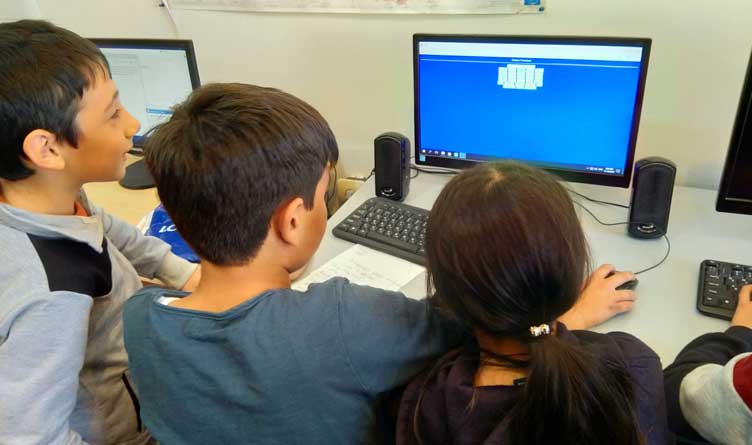Photo Credit: Vmakenas / CC
Published March 24, 2021
Hamilton County, TN – The Public Education Foundation Chattanooga announced that the first seven Hamilton County Schools (HCS) to receive new eLabs are all elementary schools.
According to the Fab Foundation from Massachusetts Institute of Technology (MIT), HCS already boasts the largest concentration of Fab Labs in the world.
An anonymous $1 million donation announced last month furthers PEF’s partnership with HCS to expand student access to innovative learning and workforce development opportunities with 15 additional labs set to open over the next three years.
The competitive proposal process recently culminated with the selection of the first cohort of schools that will be opening labs in August 2021.
2021 HCS eLab Recipients:
- Battle Academy
- Brown Academy
- East Ridge Elementary
- Lookout Valley Elementary
- Red Bank Elementary
- Soddy Elementary
- Thrasher Elementary
“PEF is delighted to be able to make a second investment of a million dollars to expand our students’ access to digital fabrication, thanks to an amazing anonymous donation. I’m especially excited that all of the schools chosen in this first round are elementary schools. Imagine what our youngest students will create in these labs,” noted Dr. Dan Challener, President of PEF.
The HCS eLab network currently consists of 23 school-based digital fabrication labs, locally known as “eLabs.” Digital fabrication labs, invented at MIT in 2001, have traditionally been reserved for university students and researchers. However, in 2014, STEM School Chattanooga pioneered a compelling model to integrate the labs in high school. With the expansion of Volkswagen eLabs across HCS (2017-2019), HCS emerged as a global leader with labs now thriving in 23 middle schools and high schools.
“One of the focus areas of our strategic plan is Future Ready Students, and we believe it is essential for students to have rich learning experiences that will prepare them for the jobs of the future. These eLabs will significantly multiply the number of students who have access to a digital fabrication lab and put them on the path to future readiness,” said Dr. Bryan Johnson, Superintendent of HCS.
With each of the seven new labs opening in elementary schools, this represents the first time in our region that students across the district will have the opportunity to experience these innovative learning environments kindergarten through 12th grade.
HCS eLabs offer students opportunities to develop future-ready skills as they create solutions to real-world challenges. For instance, students design and code custom robotics, create functional prosthetics, build solar-powered go-karts, and design sustainable systems to provide solutions for clean drinking water.
“We already have alumni who are pursuing industry and trade certifications, as well as STEM and computer science degrees as a direct result of their high school experiences in an eLab,” said Michael Stone, Vice President of Innovative Learning at PEF. “It is exciting to imagine the impact of today’s kindergartner students engaging in eLabs over the next 12 years!”
The learning that takes place in these labs empowers students to develop a STEM identity that uniquely equips them to solve the problems of today while they prepare to meet the workforce demands of tomorrow.
“Now, more than ever, we need to prepare students to be collaborators, designers and problem solvers. We are excited that our elementary students will have the opportunity to discover new ideas in exciting and meaningful ways in our new eLabs,” noted Dr. Jill Levine, Chief of Innovation and Choice at HCS.





